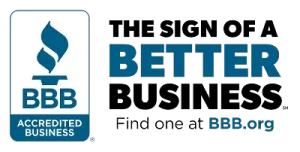Why E-Complish Leads the Future of Integrated Business Payments
Software platforms with native payment capabilities see 3x higher customer lifetime value than those that redirect users to external processors. Embedded payment integration isn’t just convenient; rather, it’s essential for modern businesses that want to keep customers engaged and revenue flowing.
This is where modern payment APIs make all the difference. Application Programming Interfaces (APIs) act as bridges that allow your software to communicate directly with payment systems, eliminating redirects and manual processes. Instead of sending customers to external payment pages, APIs enable seamless payment processing within your application environment, creating the automated, secure transaction flows that drive higher conversion rates.
For over 20 years, E-Complish has been a trusted payment processing leader serving thousands of companies nationwide. Our DevConnect transforms your system into a complete payment ecosystem, all within your application environment.
Rapid Integration & Developer Support
Launch integrated payment solutions in just 5–7 business days using REST or SOAP APIs. DevConnect supports major programming languages like Java, .NET, PHP, Python, Node.js, and Ruby, with comprehensive documentation, SDKs, and dedicated developer support.
Revenue Optimization & Enhanced Cash Flow
Did you know that native checkout flows eliminate cart abandonment from redirects and reduce processing costs by up to 40%? Real-time transaction data and automated reconciliation provide full financial transparency and improve cash flow predictability.
Enterprise-Grade Security
With PCI DSS Level 1 compliance and advanced tokenization, sensitive data is protected while enabling seamless payments. Multi-layered fraud prevention and real-time monitoring reduce chargebacks by up to 70% compared to traditional processors.
Unified Payment Ecosystem
The flexible DevConnect API integrates seamlessly with all E-Complish services, from electronic signatures to recurring billing, allowing you to create powerful workflows that adapt to complex business demands without needing additional integrations.
Scalable Infrastructure with Auto-Scaling
DevConnect’s infrastructure scales automatically to handle any volume of transactions, whether it’s 10 or 10,000 transactions per day. Intelligent load balancing and redundancy ensure 99.9% uptime during peak transaction periods.
Full Customization & Security-Focused API
At E-Complish, our white-label payment interfaces provide full control over user experience, payment flows, and business logic. The secure payment API supports webhooks, tokenization, and encryption. It includes a sandbox for safe testing, ensuring flexibility and security at scale.
Stop Losing Revenue to Payment Redirects
Every external checkout costs you customers. Integrated payment solutions keep users in your ecosystem, boost conversion rates, and capture the full value of your software investment. With us, you can transform your platform in days, not months.

DevConnect's Payment Capabilities: Complete Control Over Your Payment Stack
Our flexible payment API provides comprehensive payment functionality directly within your software environment, eliminating the need for external payment pages or third-party redirects.

& More
DevConnect's flexibility extends beyond these core features. We offer a wide range of advanced functionalities, including Custom Reporting & Analytics, Virtual Terminal, Fraud Prevention Suite, and more.
Complete Integration with E-Complish Payment Ecosystem
DevConnect’s embedded API amplifies its power when combined with our comprehensive payment platform. Together, they created unified experiences that handle complex payment scenarios seamlessly.
Industry-Specific Embedded Payment Solutions
DevConnect’s embedded payment API adapts to industry-specific requirements, providing specialized functionality that addresses unique business challenges across sectors.
Technical Specifications: Built for Developers
DevConnect’s embedded payment API is thoughtfully designed. It provides comprehensive technical capabilities designed for seamless integration across diverse development environments.
REST and SOAP API Support
Choose between REST's lightweight flexibility or SOAP's structured security based on your technical requirements. Both architectures support identical functionality with comprehensive documentation and code samples.
Multi-Language Compatibility
Native support for all major programming languages, including Java, .NET, PHP, Python, Ruby, Node.js, and more. SDKs and libraries accelerate integration while upholding security best practices.
Webhook Integration
Real-time event notifications keep your application in sync with payment status changes, settlement updates, and transaction modifications. Configurable webhook endpoints ensure reliable event delivery and processing.
Sandbox Environment
The complete testing environment mirrors production capabilities with synthetic transaction processing, error simulation, and comprehensive logging. Validate integrations thoroughly before going live.
Security-First Architecture
Advanced tokenization, field-level encryption, and secure key management protect sensitive data throughout the payment process. PCI DSS Level 1 compliance reduces security scope while maintaining robust protection.
Scalable Infrastructure
Auto-scaling architecture handles transaction volume spikes automatically while maintaining consistent response times. Built-in redundancy and failover ensure service is always available.

Our Clients Reviews
Experience the Future of Payments: Connect with E-Complish Today
Ready to unlock the full potential of your payment processing with DevConnect? Our team of experts is here to guide you every step of the way, from initial consultation to seamless integration and ongoing support. Contact us today to schedule a demo and discover how DevConnect can transform your payment operations.

DevConnect FAQs: Your API Questions Answered
What is the pricing for DevConnect?
How quickly can we implement embedded payments in our existing software?
How does DevConnect API integration work?
- Customer initiates payment in your application.
- Your system sends encrypted API requests to DevConnect.
- DevConnect routes payment through an optimal gateway with fraud screening.
- Payment processor authorizes and captures funds.
- DevConnect sends real-time webhooks with transaction results.
- Your system updates customer records with a complete audit trail.























